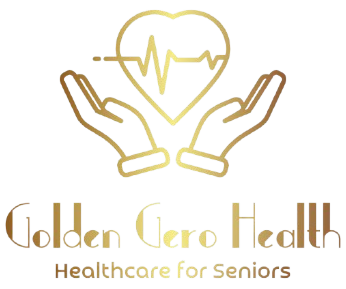Book Appointment Now

Heart disease is one of the most common health concerns for older adults, but there is a lot of misinformation about it. Many people believe that heart disease is just a natural part of aging or that nothing can be done to prevent it. However, the truth is that heart disease is often preventable and manageable with the right lifestyle choices and medical care.
As a geriatrician, I want to help clear up some confusion by sharing five important facts and five common myths about heart disease in older adults.
🔹 5 Facts About Heart Disease in Older Adults
- Heart Disease Is the Leading Cause of Death in Older Adults
Heart disease is the number one cause of death worldwide, and older adults are at the highest risk. Conditions like high blood pressure, high cholesterol, diabetes, and smoking increase the chances of developing heart disease. However, lifestyle changes and medical treatment can significantly reduce this risk.
- Heart Attacks and Strokes Can Have Different Symptoms in Older Adults
Many people think a heart attack always causes chest pain, but in older adults, symptoms can be different or more subtle. Symptoms may include:
🔹 Shortness of breath
🔹 Fatigue
🔹 Dizziness or lightheadedness
🔹 Nausea or stomach pain
🔹 Pain in the jaw, neck, or back
Similarly, strokes may cause confusion, balance problems, or sudden vision changes instead of the classic symptoms of paralysis. Always seek medical help if you notice unusual symptoms.
- High Blood Pressure Is a Major Risk Factor for Heart Disease
Uncontrolled high blood pressure (hypertension) makes the heart work harder, increasing the risk of heart attacks, strokes, and heart failure. Many older adults do not feel any symptoms, so it’s important to check blood pressure regularly and follow treatment plans if needed.
- Heart Disease Can Be Prevented at Any Age
It’s never too late to improve heart health! Even in your 60s, 70s, or 80s, making small lifestyle changes can lower the risk of heart disease. These include:
✅ Eating a healthy diet with less salt and unhealthy fats
✅ Exercising regularly (even gentle walking helps!)
✅ Managing stress and getting good sleep
✅ Taking medications as prescribed
- Women and Men Experience Heart Disease Differently
Older women often have different symptoms of heart disease compared to men. Women may have more fatigue, shortness of breath, or nausea, rather than the classic chest pain. Because of this, heart disease in women can be overlooked or misdiagnosed.
🔻 5 Common Myths About Heart Disease in Older Adults
- “Heart Disease Is Just a Normal Part of Aging”
❌ Myth: Nothing can be done to prevent heart disease as you get older.
✅ Truth: Heart disease is not an inevitable part of aging! A healthy lifestyle and proper medical care can prevent or delay heart problems.
- “If I Feel Fine, My Heart Must Be Healthy”
❌ Myth: No symptoms mean no heart problems.
✅ Truth: Many heart conditions, like high blood pressure or early-stage heart disease, have no symptoms. Regular check-ups are essential to detect problems early.
- “If I Have Heart Disease, I Should Avoid Exercise”
❌ Myth: Exercising is dangerous if you have heart problems.
✅ Truth: Regular physical activity (approved by your doctor) is one of the best ways to strengthen your heart, lower blood pressure, and improve circulation.
- “I Take Medication, So I Don’t Need to Worry About My Diet”
❌ Myth: Medications alone will keep my heart healthy.
✅ Truth: Medications help, but a heart-healthy diet is just as important. Eating less salt, sugar, and unhealthy fats can prevent complications and keep the heart strong.
- “Once You Have Heart Disease, There’s Nothing You Can Do”
❌ Myth: Heart disease cannot be improved once diagnosed.
✅ Truth: Even after a heart disease diagnosis, making lifestyle changes and following medical advice can slow progression, improve symptoms, and even reverse some damage.
Final Thoughts: Take Care of Your Heart!
Heart disease is serious but manageable, and many cases can be prevented. Here’s how you can protect your heart:
✔ Check your blood pressure and cholesterol regularly
✔ Eat heart-friendly foods like fruits, vegetables, and whole grains
✔ Stay active – even short walks make a difference!
✔ Quit smoking and limit alcohol
✔ Take your medications as prescribed
By making small changes, you can keep your heart healthy and live a longer, more active life. Your heart works hard for you—take care of it!

